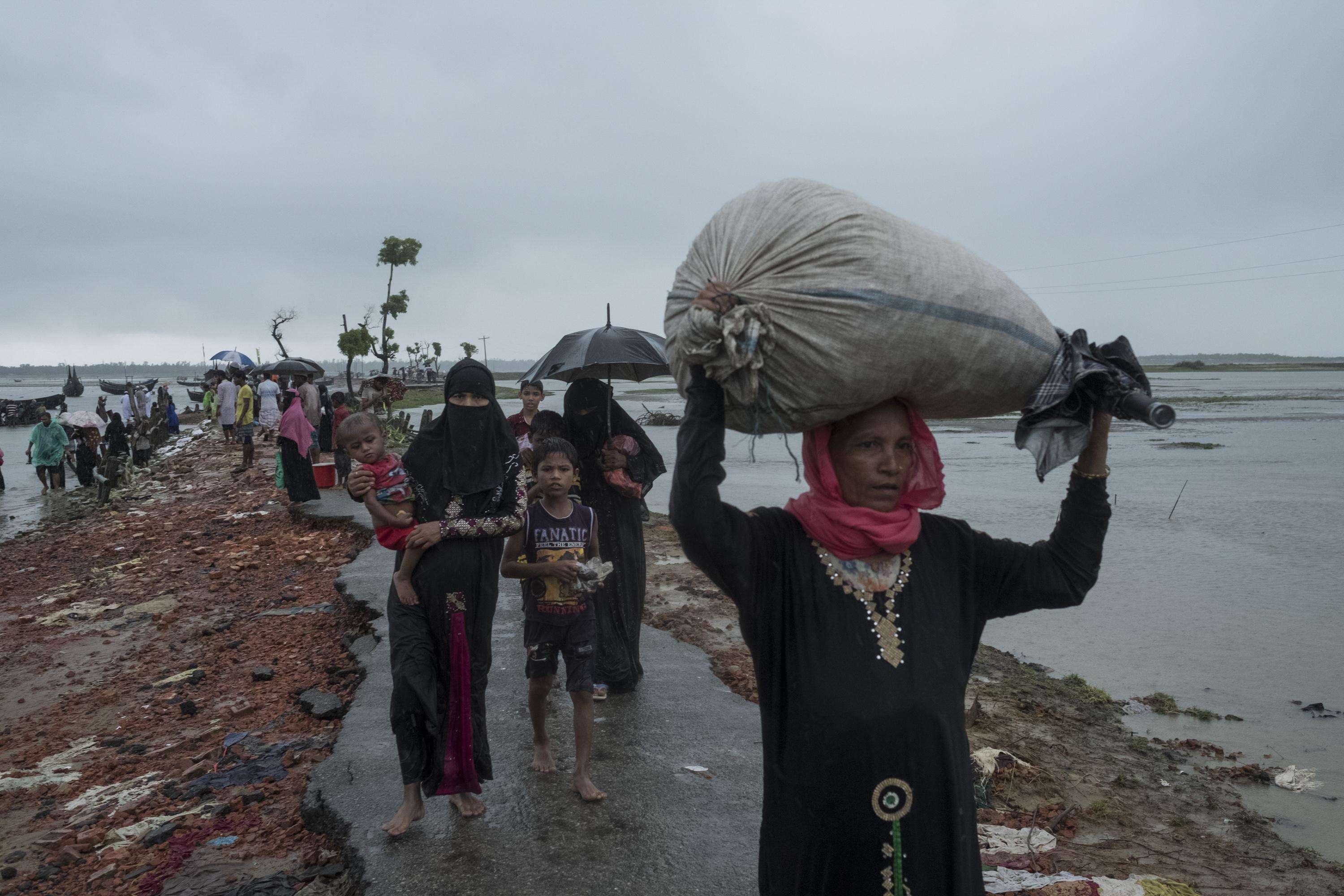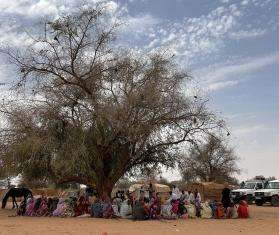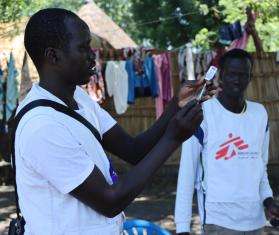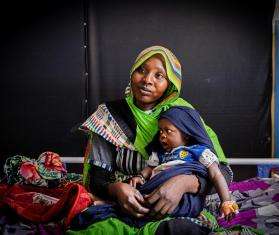KUTUPALONG,BANGLADESH/NEW YORK, SEPTEMBER 21, 2017—A massive scale-up of humanitarian aid is needed in Bangladesh to avoid a public health disaster following the arrival of hundreds of thousands of Rohingya refugees, warned the international medical humanitarian organization Doctors Without Borders/Médecins Sans Frontières (MSF) on Thursday.
More than 422,000 people have fled to Bangladesh from Rakhine state in Myanmar within the last three weeks following a wave of targeted violence against members of the Rohingya ethnic minority. This most recent influx of Rohingya refugees has added to the hundreds of thousands of Rohingya who had already fled across the border during episodes of violence in previous years.
Read More: "If This is the Better Option, the Other Must Have Been a Living Hell"
Most of the newly arrived refugees have moved into makeshift settlements without adequate access to shelter, food, clean water, or latrines. Two of the main pre-existing settlements in Kutupalong and Balukhali have effectively merged into one densely populated settlement of nearly 500,000 refugees, making it one of the largest concentrations of refugees in the world.
“Hundreds of thousands of refugees are living in an extremely precarious situation, and all the preconditions for a public health disaster are there,” said Robert Onus, MSF emergency coordinator. “We most likely still haven’t seen the full impact of this crisis in terms of health. There is an acute need for a massive humanitarian intervention focusing on food, clean water, shelter, and sanitation, and a solution is needed to reduce the size of these massive, congested camps.”
Medical facilities, including MSF’s own clinics, are completely overwhelmed. Between August 25 and September 17, MSF clinics received a total of 9,602 outpatients, 3,344 emergency room patients, 427 inpatients, 225 patients with violence-related injuries, and 23 cases of sexual violence.
Conditions at the settlements are grim. “These settlements are essentially rural slums that have been built on the side of the only two-lane road that runs through this part of the district,” said Kate White, MSF’s emergency medical coordinator. “There are no roads in or out of the settlement, making aid delivery very difficult. The terrain is hilly and prone to landslides, and there is a complete absence of latrines. When you walk through the settlement, you have to wade through streams of dirty water and human feces.”
With little potable water available, people are drinking water collected from paddy fields, puddles, or hand-dug shallow wells which are often contaminated. At MSF’s medical facility in Kutupalong, 487 people were treated for diarrheal diseases between September 6 and 17.
Read More: "A Tiny Bit More Bad Luck and We’ll Have an Epidemic on our Hands"
“We are receiving adults every day on the cusp of dying from dehydration,” said White. “That’s very rare among adults, and signals that a public health emergency could be just around the corner.”
Food security in and around the settlements is incredibly fragile: newly arrived refugees are completely reliant on humanitarian aid, prices in the market are skyrocketing, and the lack of roads is compromising access to the most vulnerable populations.
“With very little money and chaotic, congested, and insufficient food distributions, many Rohingya are only eating one meal of plain rice per day,” said White. “Some refugees told us that after days without food all they had eaten was one bowl of rice they received from a Bangladeshi restaurant owner, shared among a family of six.”
There is a very high risk of an infectious disease outbreak in the area given the huge and rapid increase in the population, as well as the known low vaccination coverage among the Rohingya community in Myanmar. Comprehensive vaccination campaigns for measles and cholera need to be launched immediately to reduce the outbreak risk and protect the Rohingya and Bangladeshi populations. In anticipation, MSF has prepared an isolation unit in the Kutupalong medical facility to rapidly contain any suspected or identified cholera or measles cases.
“The situation in the camps is so incredibly fragile, especially with regard to shelter, food, and water and sanitation,” said Onus. “One small event could lead to an outbreak that may be the tipping point between a crisis and a catastrophe.”
Read More: Myanmar: International Humanitarian Access to Rakhine State Must Be Permitted
MSF first worked in Bangladesh in 1985. Close to the Kutupalong makeshift settlement in Cox’s Bazar district, MSF runs a medical facility and a clinic offering comprehensive basic and emergency health care, as well as inpatient and laboratory services to Rohingya refugees and the local community. In response to the influx of refugees MSF has significantly increased water, sanitation and medical activities for this population.
Elsewhere in Bangladesh, MSF works in Kamrangirchar slum, in the capital, Dhaka, providing mental health, reproductive health care, family planning, and antenatal consultations, as well as an occupational health program for factory workers.




